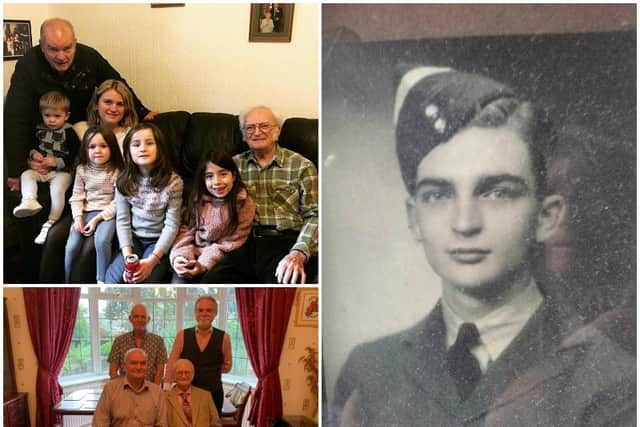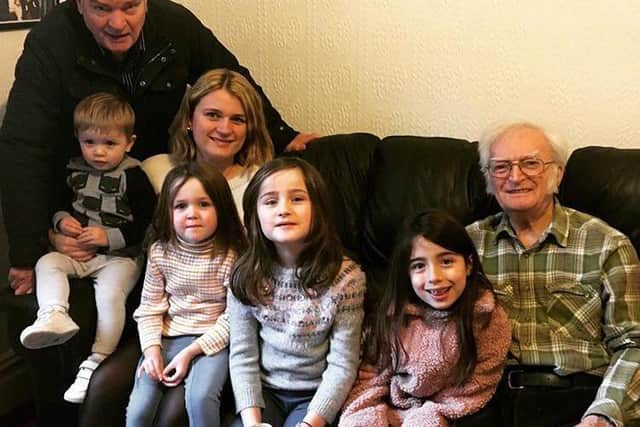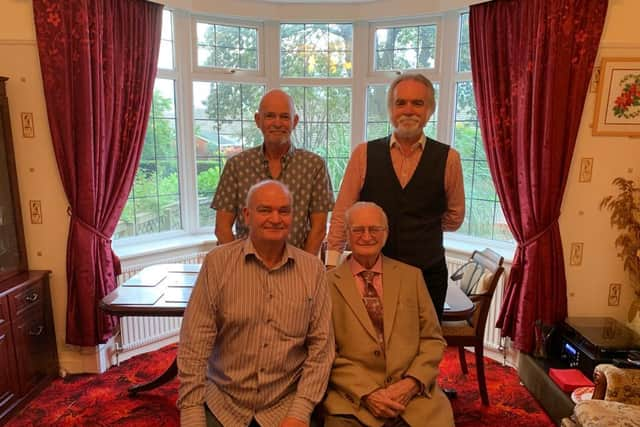Second World War veteran was moments from being buried at sea - when he woke up inside body bag
and live on Freeview channel 276
Having trained in Blackpool, the 98-year-old spent much of the war at sea near Africa, where he would fly up the coast and watch out for enemy submarines.
As his condition deteriorated he was classed as unfit for service.
Advertisement
Hide AdAdvertisement
Hide Ad

Later, he was put in a body bag after he was mistaken as dead. A vicar had read him the last rites.
Just as he was about to be thrown overboard, to be buried at sea, he coughed. Harry, it emerged, had been in a coma and only came round at the very last moment.
He shouted: “Let me out.”
It was those words that saved his life. And they were the start of a long road to recovery.


During a time of limited communications during the war, his wife Vera was instructed to come to the ship and collect his belongings.
Advertisement
Hide AdAdvertisement
Hide AdWhen she got there she was delighted to find Harry alive. But Harry was so ill, it took him five years to fully recover from the disease.
To make up for lost time he threw himself into badminton, tennis, allotment gardening, swimming and finally flying again with the Newcastle gliding club.
The remarkable tale of one man’s war began when Harry was born in 1922 in Sunderland. His dad, Bernard Oxman, was an aircraft fitter for the RAF in the first world and Harry loved learning about planes.


In the Second World War, Harry signed up and joined the RAF in November 1940 aged 18. He started as a trainee 2nd pilot in February 1941 and moved to Blackpool, where he trained.
Advertisement
Hide AdAdvertisement
Hide AdHe joined the Mosquito fighter planes but the speed and noise of the jets left him air sick.
He stayed in Blackpool but was reassigned to the Sunderland Flying Boat as a navigator.
The boats were built in Troutbeck, in the Lake District, and were the only UK-made aircraft to be able to land on water. And Harry was the only person from Sunderland to fly in them.
From, Blackpool, he was dispatched to the West Coast of Africa in August 1941. He was on submarine patrol and he would fly up to the north near Free Town and down to the south at the Belgium Congo taking out enemy submarines.
Advertisement
Hide AdAdvertisement
Hide AdHarry’s war ended when he became seriously ill but his time with flying continued after his recovery from malaria. He finally qualified for a solo pilot licence and he went onto obtain the club record for thermal flight of five hours and 15 minutes.
He used to take his sons up with him after that and his second eldest Keith carried on the love of flying by also obtaining his pilot’s licence later on.
He had five children and unfortunately lost his wife Vera – who he’d married in 1943 – in 2008 and his only daughter, Sheila, to a brain tumour in 2014.
He has 13 grandchildren and 7 great grandchildren.
Harry shared his story in the week when Britain will mark the 75th anniversary of VE Day.
Advertisement
Hide AdAdvertisement
Hide AdHe believes it is important to mark the anniversary and said: “Up until recently, I used to keep in touch with the old crew but as far as I know, I am the only one left.
“I reflect on VE Day about the friendships I made and the things I experienced.
“I used to be involved in the parades and wear my badges but I am too old now.
“I would have done something with my family but due to the current climate, I will just celebrate and remember at home.
“It is probably for the best. My legs aren’t as strong as they once were.”